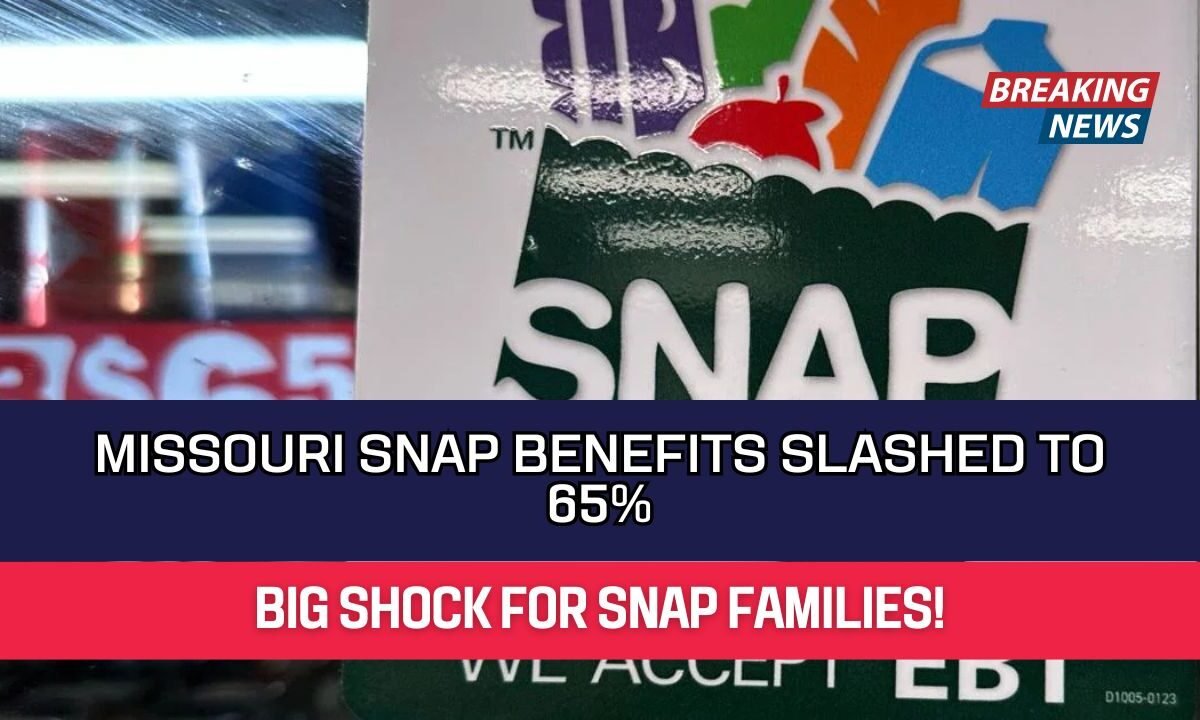Many families in Missouri who depend on food assistance are facing a sudden and stressful change this month. The Supplemental Nutrition Assistance Program (SNAP), which helps low-income households buy food, will not be paying the full amount that recipients expected.
Instead, the state will only issue partial payments after a recent Supreme Court decision temporarily blocked full benefits.
What Happened to Missouri SNAP Payments
Earlier this month, the Missouri Department of Social Services (DSS) announced that it would start issuing full SNAP benefits for November, following earlier instructions from the U.S. Department of Agriculture (USDA).
However, that plan changed quickly after the U.S. Supreme Court stepped in and froze a lower court’s ruling that allowed states to give full payments.
As a result, Missouri and other states must now go back to sending only 65% of the regular SNAP benefit amount until further notice.
The state said it is waiting for more guidance from the USDA before making any new changes. Officials confirmed they will follow whatever directive comes next from the federal government.
USDA’s Updated Instructions to States
After the court’s decision, the USDA issued new guidance ordering states to reverse any steps taken to release full benefits.
The department told state agencies to continue processing partial payments until a new ruling or funding update is made. This means Missouri’s November SNAP deposits will be smaller than usual for all recipients.
How Many People Are Affected
Missouri has around 650,000 residents who rely on SNAP each month. These benefits are a lifeline for many families, seniors, and individuals who struggle to afford groceries.
In the last fiscal year, the average SNAP benefit per household in Missouri was about $397. The new partial payments mean many families will see a reduction of more than $100 for the month.
Why This Change Happened
The partial payments are linked to the ongoing federal government shutdown, which disrupted funding for multiple social programs, including SNAP.
Because of the shutdown, the USDA’s budget for food assistance temporarily ran out. When a lower court ordered full payments anyway, the Supreme Court blocked that ruling to prevent further spending until Congress agrees on a funding plan.
This decision has created confusion among both state agencies and families who depend on these benefits. The legal case is still active, and future rulings could again change how much assistance people receive.
Key Facts About Missouri SNAP Changes
| Category | Details |
|---|---|
| Program | Supplemental Nutrition Assistance Program (SNAP) |
| Administered by | Missouri Department of Social Services (DSS) |
| Federal authority | U.S. Department of Agriculture (USDA) |
| Court decision impact | Supreme Court blocked full benefit payments |
| Current payment status | About 65% of normal benefit issued |
| Average monthly benefit | Around $397 per household |
| People affected | Nearly 650,000 Missouri residents |
What It Means for Missouri Families
This partial payment will have a serious impact on low-income households. Many families plan their monthly grocery budgets around the full SNAP amount, so the sudden cut will make it harder to buy essentials.
Food banks and community organizations across Missouri are already preparing for more requests for help.
People who rely on SNAP are advised to keep checking for updates from the Missouri DSS, as the situation may change again if the USDA or Congress approves new funding.
Possible Future Changes
The situation is still developing. If Congress passes a funding bill soon, or if the Supreme Court changes its ruling, Missouri could go back to issuing full SNAP benefits. However, for now, recipients should expect reduced food assistance until new federal guidance is released.
The decision to issue only partial SNAP benefits in Missouri highlights how national budget problems and legal decisions can deeply affect local families.
With 650,000 residents depending on this help, even a small cut can mean the difference between having enough food or going hungry. Until a clear ruling or new funding is approved, Missouri families will need to adjust and seek local resources to get through the month.




